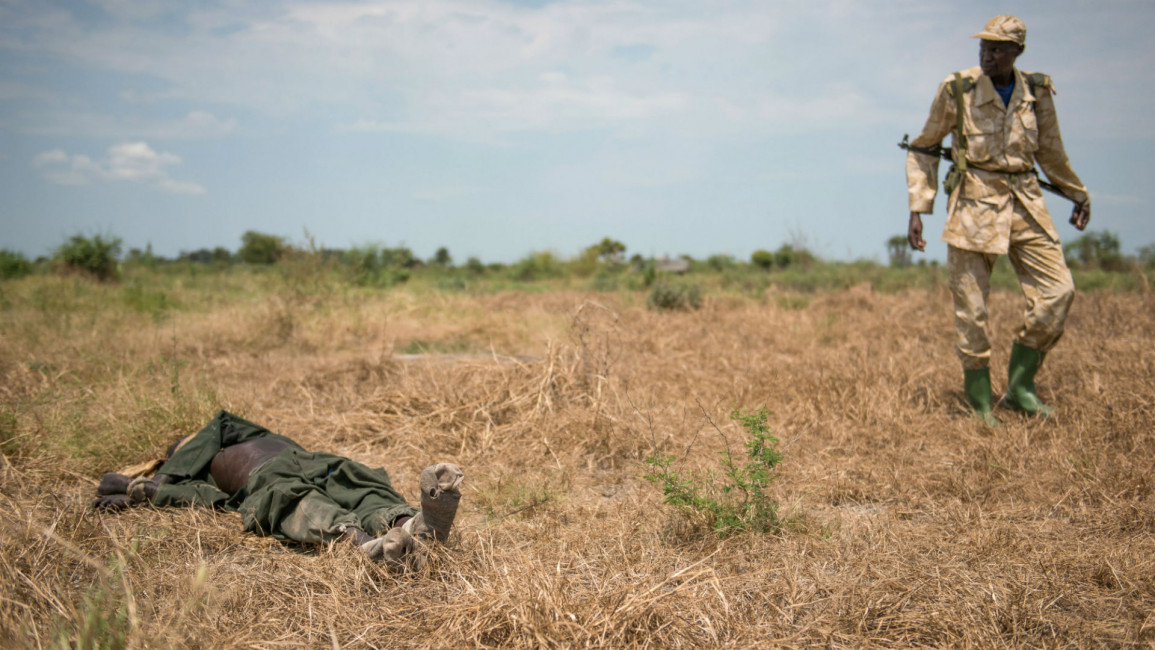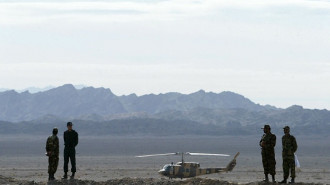South Sudan: At least 60 killed in fighting surge
At least 56 rebels and four government troops were killed in heavy weekend clashes in northeastern South Sudan, in a worrying surge of violence in the world's youngest nation.
Sudan People's Liberation Army [SPLA] spokesman Brigadier General Lul Ruai Koang said on Monday that rebels aligned with former vice president Riek Machar attacked government troops near the country's second largest city of Malakal.
Violence between Machar's supporters and troops loyal to his bitter political foe President Salva Kiir, has blighted the nation for much of its hard-won independence from Sudan, achieved in 2011.
"The rebels of Riek Machar attacked us in two places of our defence, that is Wajwok and Lelo, and we heavily impacted on them. The dead bodies of the rebels confirmed after count was 56," the spokesman said, adding that the clashes began on Friday evening and ended on Saturday.
"On our side, we lost four SPLA fighters and 20 were wounded."
Forces loyal to Kiir invited journalists to the region on Sunday to show they were in control of the area, and an AFP photographer reported seeing up to 40 bodies in the places he could access.
 |
|
| Numerous attempts to shore up a fragile 2015 truce have failed [Getty] |
However, Major Dickson Gatluak with the rebel SPLA In Opposition [SPLA-IO] insisted his forces were in control of the two towns as well as the northern part of Upper Nile state.
"What we are trying to do now is, our forces are trying our level best to try to march to Malakal town. So our forces are not yet displaced from those areas and this is not true," he said.
Malakal is the closest town to the oil fields in the Upper Nile region which bring in government's biggest revenue, and has changed hands several times since fighting broke out in 2013.
Gatluak said fighting was ongoing, although the AFP photographer reported it was calm on Sunday.
"It is just a matter of time (before) our forces will take Malakal... we have realised that there is no political settlement in Juba, there is not any political space in Juba so we have to organise ourselves because the government has failed," he said.
South Sudan, which gained independence in July 2011, descended into war just two and a half years later when Kiir in December 2013 accused Machar – who he had sacked as his deputy – of plotting a coup.

![Palestinians mourned the victims of an Israeli strike on Deir al-Balah [Getty]](/sites/default/files/styles/image_684x385/public/2024-11/GettyImages-2182362043.jpg?h=199d8c1f&itok=xSHZFbmc)


![The law could be enforced against teachers without prior notice [Getty]](/sites/default/files/styles/image_684x385/public/2178740715.jpeg?h=a5f2f23a&itok=hnqrCS4x)
 Follow the Middle East's top stories in English at The New Arab on Google News
Follow the Middle East's top stories in English at The New Arab on Google News
![Fakhrizadeh [AFP] Fakhrizadeh [AFP]](/sites/default/files/styles/image_330x185/public/media/images/774C39F7-8F7A-4D67-B998-27D102FCB4A7.png?h=d1cb525d&itok=j9eGvunV)

